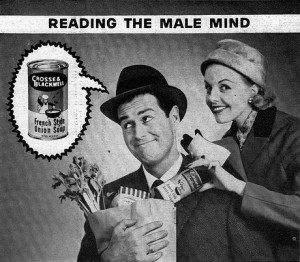 For those of you unfamiliar with the story, it's based off Victor Hugo's novel about the later years of the French Revolution. It follows the lives of impoverished people of France looking for a better life, for redemption. The main character is Jean Valjean, a convict who spent 19 years at hard labor for stealing a loaf of bread to save his sister's starving child. After he's released, an act of kindness makes him decide to turn his life around and he breaks his parole, changes his name, and starts again. Javert, a police inspector with a black and white view of morality makes it his mission to recapture Valjean.
For those of you unfamiliar with the story, it's based off Victor Hugo's novel about the later years of the French Revolution. It follows the lives of impoverished people of France looking for a better life, for redemption. The main character is Jean Valjean, a convict who spent 19 years at hard labor for stealing a loaf of bread to save his sister's starving child. After he's released, an act of kindness makes him decide to turn his life around and he breaks his parole, changes his name, and starts again. Javert, a police inspector with a black and white view of morality makes it his mission to recapture Valjean.The production had a very impressive cast on the whole. Stage and screen veteran, Hugh Jackman plays a sympathetic Valjean. He presents the aging of Valjean in a realistic manner. The sound of his voice seems to shift as time passes, especially in the finale of the film, you hear the sound of weakened, elderly man. Eddie Redmayne and Aaron Tveit are very strong as the young revolutionaries, Marius and Enjolras. Redmayne is not known for his singing, but has a clear voice deeply laden with emotion. The song "Heart Full of Love," (which isn't one of my favorite of the show due to its slightly cliche' lyrics) feels strangely genuine, giddy, and comical in Redmayne's hands. Tveit's theatre experience comes across in his commanding performance as leader of the students. I'm dissapointed he wasn't featured more on the posters and other press for the film.
The female cast was generally strong as well. Anne Hathaway was surprisingly adept at marrying emotion with vocal quality. Samantha Barks, familiar to Les Mis fans from her performance in the 25th Anniversary concert reprises her role as Eponine to good effect.
The only person who seemed miscast was Russell Crowe as Javert. Not a natural singer, he handles all his solo work decently, but at times it seems like he's putting to much focus on his singing. He has trouble balancing the acting in a scene while he's singing. Not that he's particularly bad, but when so much of the rest of the cast shines at that balance, it's easier to notice his deficit.
Overall, the film was very strong and emotionally resonant. There were many sniffles among the audience as early as a half an hour into the film. The score is extremely powerful. That's the quality that has brought theatre going audience to their feet for the past twenty five year and it continues to be effective in film. As the press for the film has made clear, the actors sang on set instead of pre-recording their music. It gives a more organic feel and allows for the actors to experiment and really perform the songs as they would in a theatrical setting.
The film medium allows them to explore the scale of the story more and even find some gritty moments about the poverty people live in. The death scenes (of course there are are death scenes) are handled well. One particular death of one of the barricade boys is done especially well, as he is draped out of a window like a flag.
Fans of the musical and of historical dramas will find many things to enjoy about the newest adaptation of Hugo's classic 19th novel.

